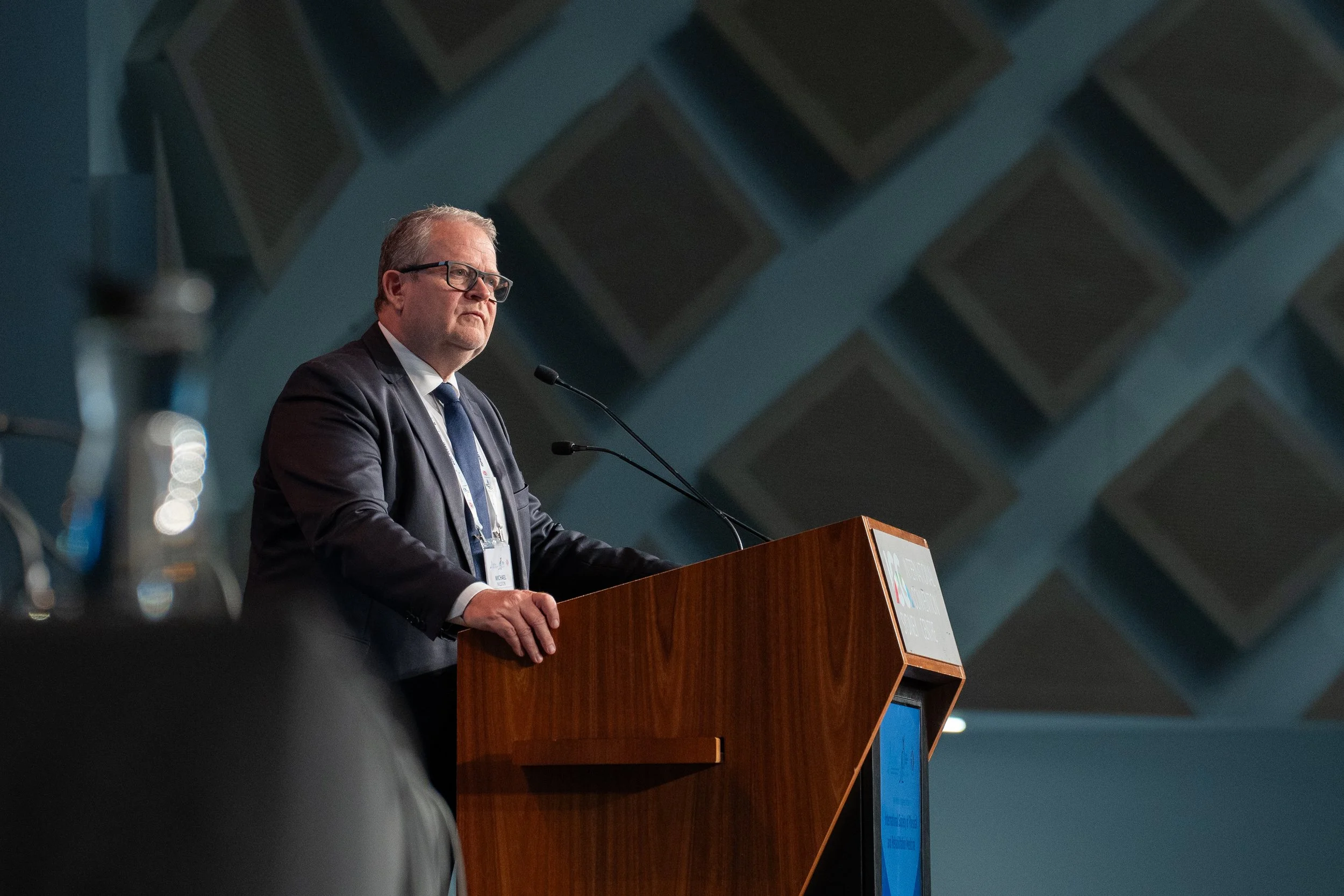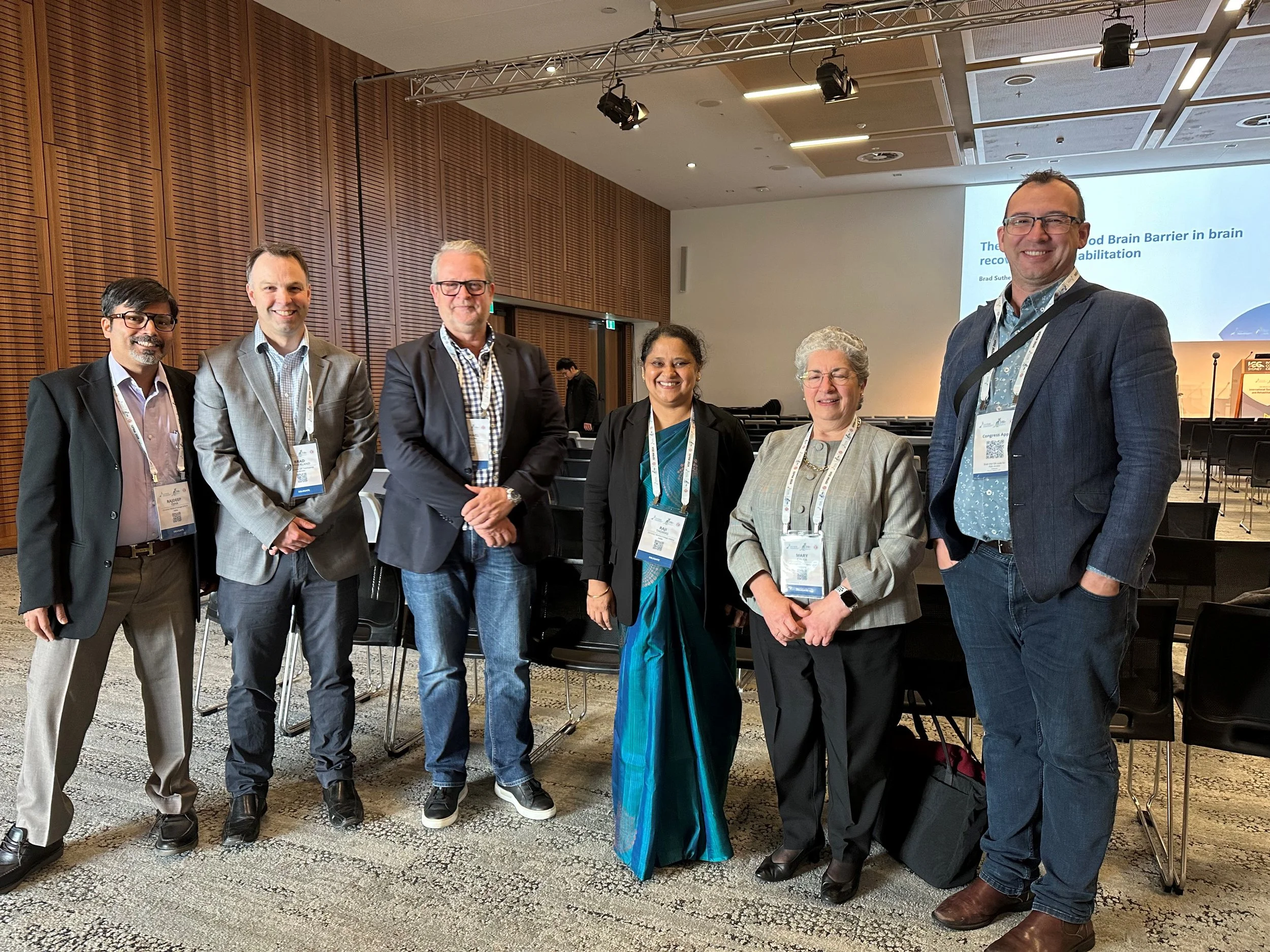ISPRM 2024 Overview
In early June, the International Society of Physical and Rehabilitation Medicine (ISPRM) 18th World Conference was held in Sydney, bringing together physical and rehabilitation experts, practitioners and teams from around the globe. Over a four day period, attendees engaged in an exchange of knowledge, cutting-edge research and innovative practices that are shaping the future of physical and rehabilitation medicine.
This year’s theme, “Innovate, Integrate and Elevate”, resonated with the Centre for Rehab Innovation’s (CRI) mission and approach to healthy living and holistic recovery. The conference featured an array of keynote speakers who are leading the way in rehabilitation medicine. Prof Michael Nilsson (Co-Director, CRI) who is known for his significant contributions to rehabilitation medicine and translational neuroscience was invited to address the congress on the development of Artificial Intelligence (AI) based clinical decision support tools for tailored rehabilitation programs.
“Digital, data and AI have the potential to achieve great impact in healthcare”
Professor Michael Nilsson, Co-Director, Centre for Rehab Innovations
Professor Thomas Linden, Sweden’s Government Chief Medical Officer and Director of the Department of Knowledge-Based Policy for Health Care at Sweden’s National Board of Health and Welfare, is a member of the Centre for Rehab Innovation’s Strategic Advisory Committee. As invited Keynote at the conference, Professor Linden discussed the necessity of integrating scientific advancements into rehabilitation practices and policies, in particular the importance of continuous learning and adaptation, highlighting that rehabilitation is about ‘adding life to years’ instead of merely extending lifespan.
Professor Thomas Linden, Government Chief Medical Officer, Sweden; Director of the Department of Knowledge-Based Policy for Health Care, National Board of Health and Welfare, Sweden; and Strategic Advisory Member, Centre for Rehab Innovations
Conference participants had the opportunity to attend over 200 sessions, including workshops, symposiums, and poster presentations. These included presentations from Prof Michael Pollack (Clinical Pathways Lead, CRI) and Prof Michael Nilsson where they discussed evidence to practice in stroke rehabilitation. Prof Rohan Walker (Co-Director, CRI) presented the teams research and results into neurodegeneration and vascular integrity in cognitive decline following stroke and Dr Karen Ribbons (Clinical Trials Manager, CRI) delivered a presentation highlighting CRI’s SuPeR Knee project where individual biopsychosocial characteristic informed the development of a clinical decision support tool for predicting outcomes and advising rehabilitation interventions after knee arthroplasty – a project funded by the Ramsay Hospital Research Foundation. Kristy Payne (Project Manager, CRI) presented a poster on CRI’s project, in partnership with QBE Insurance, looking at the ‘IMPACT Model’ and the potential for innovative systems change in personal injury recovery and pain management.
CRI’s Co Directors, Professor Michael Nilsson (3rd from left) and Professor Rohan Walker (far right), with other conference attendees.
The conference provided many opportunities for networking with attendees providing overwhelmingly positive feedback with many highlighting the conference’s role in fostering a sense of community and shared purpose.
The ISPRM continues to foster innovation and excellence in physical and rehabilitation medicine globally and CRI hopes to continue to be a leader in shaping the future rehabilitation landscape.





